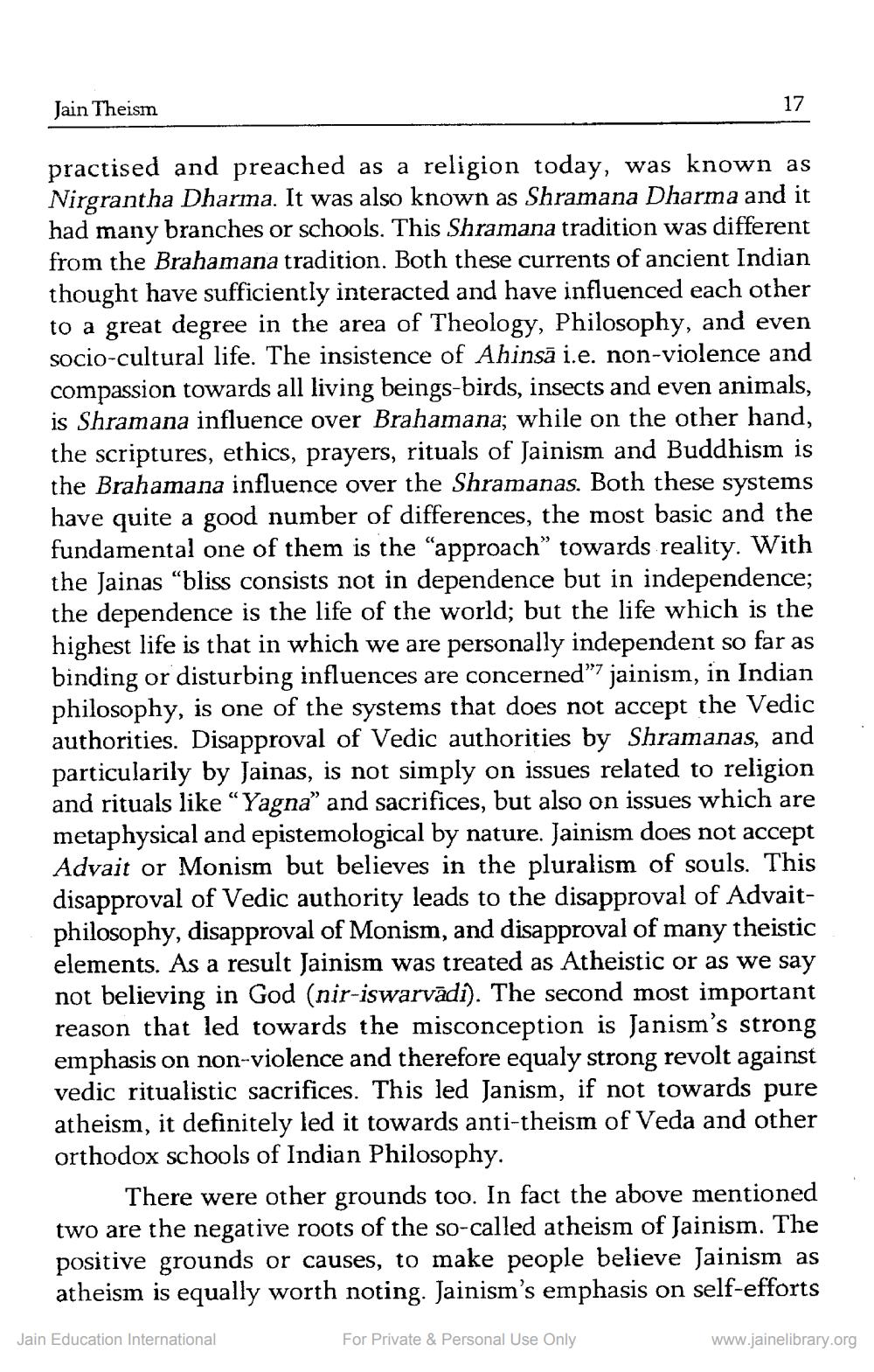________________
Jain Theism
practised and preached as a religion today, was known as Nirgrantha Dharma. It was also known as Shramana Dharma and it had many branches or schools. This Shramana tradition was different from the Brahamana tradition. Both these currents of ancient Indian thought have sufficiently interacted and have influenced each other to a great degree in the area of Theology, Philosophy, and even socio-cultural life. The insistence of Ahinsā i.e. non-violence and compassion towards all living beings-birds, insects and even animals, is Shramana influence over Brahamana; while on the other hand, the scriptures, ethics, prayers, rituals of Jainism and Buddhism is the Brahamana influence over the Shramanas. Both these systems have quite a good number of differences, the most basic and the fundamental one of them is the “approach” towards reality. With the Jainas "bliss consists not in dependence but in independence; the dependence is the life of the world; but the life which is the highest life is that in which we are personally independent so far as binding or disturbing influences are concerned" jainism, in Indian philosophy, is one of the systems that does not accept the Vedic authorities. Disapproval of Vedic authorities by Shramanas, and particularily by Jainas, is not simply on issues related to religion and rituals like “Yagna” and sacrifices, but also on issues which are metaphysical and epistemological by nature. Jainism does not accept Advait or Monism but believes in the pluralism of souls. This disapproval of Vedic authority leads to the disapproval of Advaitphilosophy, disapproval of Monism, and disapproval of many theistic elements. As a result Jainism was treated as Atheistic or as we say not believing in God (nir-iswarvādi). The second most important reason that led towards the misconception is Janism's strong emphasis on non-violence and therefore equaly strong revolt against vedic ritualistic sacrifices. This led Janism, if not towards pure atheism, it definitely led it towards anti-theism of Veda and other orthodox schools of Indian Philosophy.
There were other grounds too. In fact the above mentioned two are the negative roots of the so-called atheism of Jainism. The positive grounds or causes, to make people believe Jainism as atheism is equally worth noting. Jainism's emphasis on self-efforts
Jain Education International
For Private & Personal Use Only
www.jainelibrary.org




